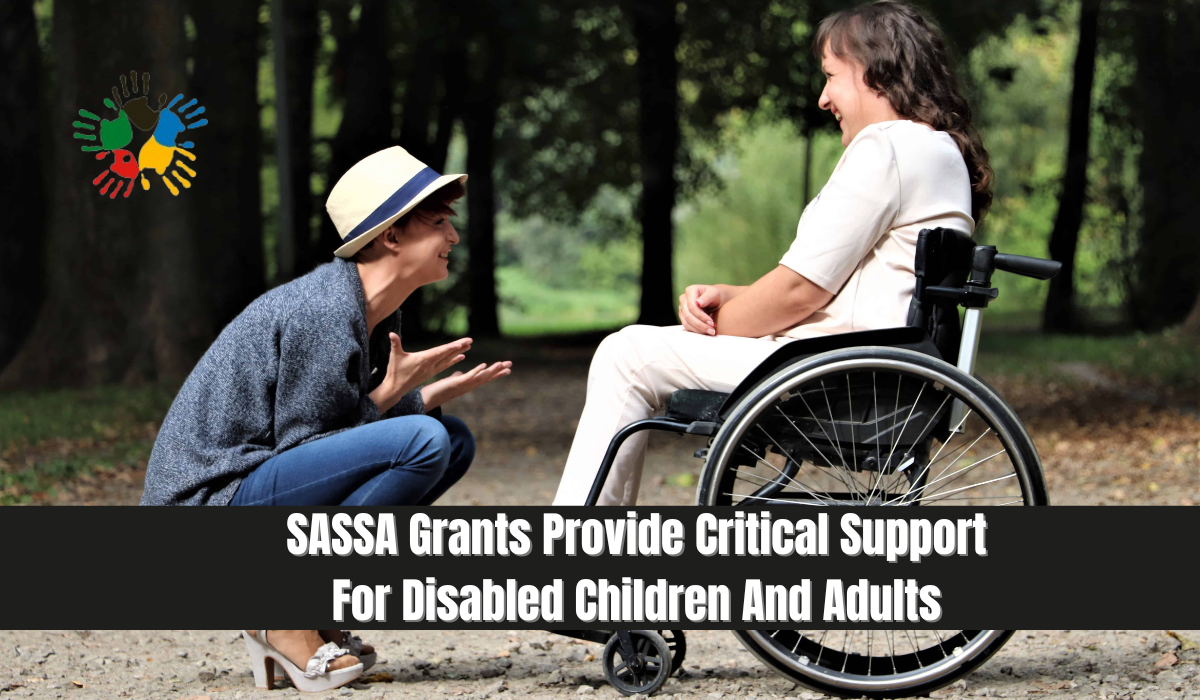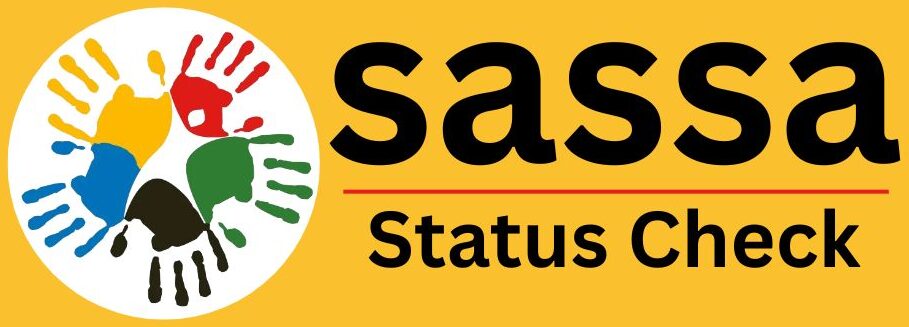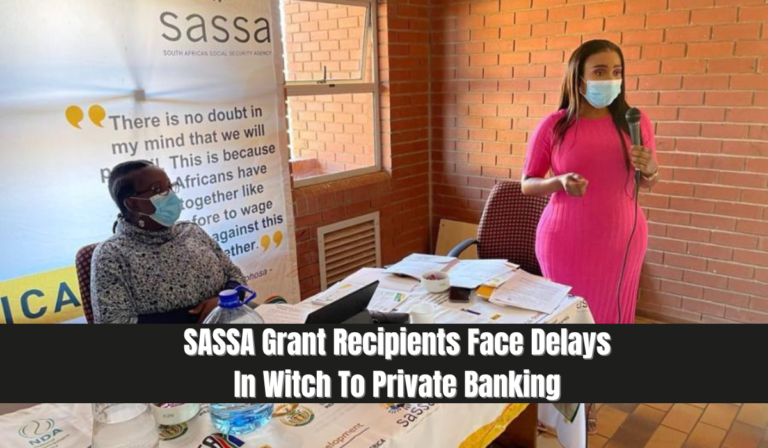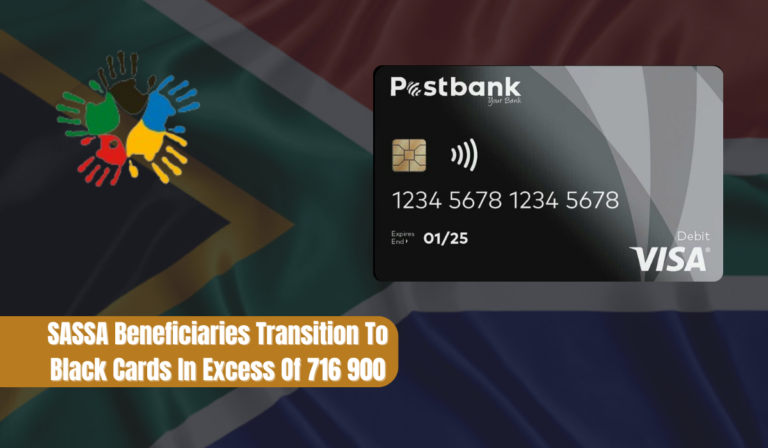SASSA Grants Provide Critical Support For Disabled Children And Adults

SASSA Grants Provide Critical Support For Disabled Children And Adults. The South African Social Security Agency (SASSA) plays a crucial role in providing financial aid to vulnerable groups in society. Among its various grants, the Care Dependency Grant (CDG) and Disability Grant (DG) stand out as essential financial assistance programs. These grants are designed to support caregivers of children with severe disabilities and adults who are unable to work due to physical or mental impairments.
With the rising cost of living, these grants ensure that recipients can afford medical care, therapy, and specialized equipment necessary for their well-being. This article provides a comprehensive guide to SASSA’s Care Dependency Grant and Disability Grant, including eligibility criteria, payment methods, application tracking, and fraud prevention measures.
What is the SASSA Care Dependency Grant?
The SASSA Care Dependency Grant (CDG) is a financial aid program aimed at helping caregivers of children with severe physical or mental disabilities. It provides much-needed financial relief to families who must bear the high costs of full-time care for their children.
Latest Updates on the Care Dependency Grant
- The Care Dependency Grant was released on March 6, 2025.
- The monthly grant amount is R2,190 as of January 1, 2025, with an expected increase in April 2025.
Eligibility Criteria for the Care Dependency Grant
To qualify for the Care Dependency Grant, the child and the caregiver must meet specific requirements:
| Criteria | Eligibility Requirement |
|---|---|
| Age Limit | The child must be under 18 years old. |
| Disability Status | The child must have a permanent and severe disability requiring full-time care. |
| Residency | The child and caregiver must be South African citizens, permanent residents, or refugees. |
| Institutional Care | The child must not be under full-time care at a government-funded institution. |
| Income Means Test | The caregiver’s income is assessed to determine eligibility. |
How to Apply for the Care Dependency Grant
Applying for the Care Dependency Grant is a straightforward process. Here’s a step-by-step guide:
- Visit the Nearest SASSA Office: Go to your closest SASSA regional office to begin the application process.
- Submit Required Documents
- Certified copy of the child’s birth certificate.
- Proof of residency (utility bill or affidavit).
- Medical report confirming the child’s severe disability.
- Proof of income and financial status of the caregiver.
- Medical Assessment: The child must undergo an assessment by a state-appointed doctor to confirm the disability.
- Application Processing: After submission, SASSA will review the application and notify the applicant of the outcome.
- Grant Approval and Payment: Once approved, the monthly payment of R2,190 will be issued through the selected payment method.
Payment Methods for the Care Dependency Grant
Beneficiaries of the Care Dependency Grant have multiple options to receive their payments:
| Payment Method | Description |
|---|---|
| Direct Bank Deposit | Funds are transferred directly into the caregiver’s bank account or Postbank account. |
| Retail Store Collection | Payments can be collected from Shoprite, Checkers, Pick n Pay, Boxer, and other participating stores. |
| ATM Withdrawal | Beneficiaries can withdraw funds using their SASSA card at ATMs. |
| Cash Collection at Pay Points | For those without a bank account, payments can be collected at designated SASSA pay points. |
Tracking the Status of a Care Dependency Grant Application
It’s essential for caregivers to track their grant application to avoid delays in payment. SASSA offers multiple ways to check the grant application status:
- Online Status Check: Visit www.sassa.gov.za and enter your ID number.
- WhatsApp Inquiry: Send “Status” to 082 046 8553 to get updates via WhatsApp.
- USSD Code: Dial 1347737# and follow the on-screen instructions.
- SASSA Customer Helpline: Call 0800 60 10 11 for assistance.
What is the SASSA Disability Grant?
The SASSA Disability Grant (DG) is designed to provide financial support to adults aged 18-59 who are unable to work due to a physical or mental disability.
Latest Updates on the Disability Grant
- The Disability Grant was issued on March 5, 2025.
- The monthly grant amount is R2,190, with an expected increase in April 2025.
Eligibility Criteria for the Disability Grant
To qualify for the Disability Grant, applicants must meet the following requirements:
| Criteria | Eligibility Requirement |
|---|---|
| Age Limit | Applicants must be between 18 and 59 years old. |
| Disability Status | Must have a certified medical disability preventing employment for at least six months. |
| Residency | Must be a South African citizen, permanent resident, or refugee. |
| Medical Examination | A state-appointed doctor must confirm the disability. |
| Income Means Test | The applicant’s income and assets are assessed for eligibility. |
How to Apply for the Disability Grant
The application process for the Disability Grant follows these steps:
- Visit a SASSA Office: Submit an application in person at your nearest SASSA office.
- Provide Required Documents
- Certified South African ID copy.
- Medical report from a state-appointed doctor confirming the disability.
- Proof of residential address.
- Proof of income and assets.
- Undergo Medical Examination: A SASSA medical officer will conduct an examination to verify the disability.
- Application Processing: SASSA will review the application and notify the applicant.
- Grant Approval and Payment: If approved, payments of R2,190 per month will commence.
Protecting Beneficiaries from Fraud
Beneficiaries should take precautionary measures to protect their personal and banking information from fraud:
- Never share your PIN or banking details with anyone.
- Report any suspicious activities to SASSA offices or the fraud helpline.
- Keep documents updated to avoid grant suspensions.
Conclusion
The SASSA Care Dependency Grant and Disability Grant provide critical financial support to caregivers and individuals unable to work due to disabilities. With structured eligibility criteria, streamlined application processes, and secure payment methods, these grants continue to uplift vulnerable members of society.






